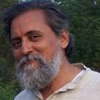Communal tension in the northeast is being exploited. What we need to do is to reverse migration and bring back the youth to their original settings in different parts of the country
Imagine how a person feels who has lived and grown with a community for years, is all of a sudden made to feel like an alien. Today, thousands of people from northeast feel like a stranger in their own country. The dynamics of immigration from Bangladesh causing tensions in the northeast is being exploited by the powers that be in the rest of the country. The scars of emigration of a large number of people who were made to flee J&K have still not healed. In communal tensions, those who become internal refugees realise the pain of being excluded. Whatever be the socio-economic cost of such involuntary movement of the people, the psychological and institutional costs are far bigger and persist longer. Even today, people affected by partition on either side of the border have not forgotten the pain. How many times should people in our country continue to feel anxious and alien in their own land?
The failure is not just of governance but also of the way we are building our nation. After years of struggle and strife, peace has been achieved in large parts of northeastern states. Despite the fact that level of development still leaves a lot of scope for improvement, the communities there have achieved distinction in education and some other areas of social development. The role of women is far stronger and well recognised in that region compared to the rest of the country. I am quite confident that we will get over the problems soon. But how will we get over the problem of managing memories.
The famous historian Simon Schama has talked about the problem of dealing with memoryscape. He says that historians are often inadequate in dealing with a lived event and the way it is narrated later. If the narration of the current meaningless migration of people from Karnataka, Maharashtra and a few other states retains the memory of alienation, exclusion and lack of solidarity with the local communities, then we must anticipate trouble in future.
It is one thing to blame the state and the central government and another to provide the healing balm. I wish Bangaloreans and Mahrashtrians had come forward to invite the anxious émigré into their houses to not only take shelter but also feel assured of shared pain. If as a part of cultural community, I am not affected by the pain of those who are rushing back to northeast out of fear, then either my concept of culture is defective or my sense of community is inadequate.
To justify violence on account of illegal immigration from Bangladesh is as tragic as to justify the reaction of one community against the innocents of another community. This is a formulation which has cost India dear in every communal riot. This kind of conceptualisation can certainly not provide fire to bake the bricks strong for building the nation. Every brick, once embedded with doubt, hatred or contempt is bound to make the structure weak. While nobody can support illegal immigration, the fact remains that poor people often move towards a place where opportunities are better.
A large number of people emigrate to the USA precisely for that reason and the US government or for that matter, Europeans have every right to check that practice. India will have to recognise the inevitable tensions that this kind of immigration poses to the nation building process.
But we should also remember that sending millions of people already settled in India for decades across the border is not a feasible option. We will have to indoctrinate them into Indian citizenship and at the same time, put a stop to fresh illegal immigration. Notwithstanding the resolution of this problem, there can be no justification for violence anywhere against anyone. Retaliatory violence against innocents is bad in law and worse in morality. Only the cowards attack the innocents.
I hope peace will prevail and we will be able to assimilate and integrate all the diverse communities in a common fabric of our nation. History cannot be rewound and we cannot afford to alienate our own people. The future narrative of contemporary struggles and tensions is yet to be composed. If we can reverse migration and bring back the youth to their original settings in different parts of the country, it is possible that memories may become merciful. But, this is a task which requires initiatives from civil society more than from the indifferent government.
